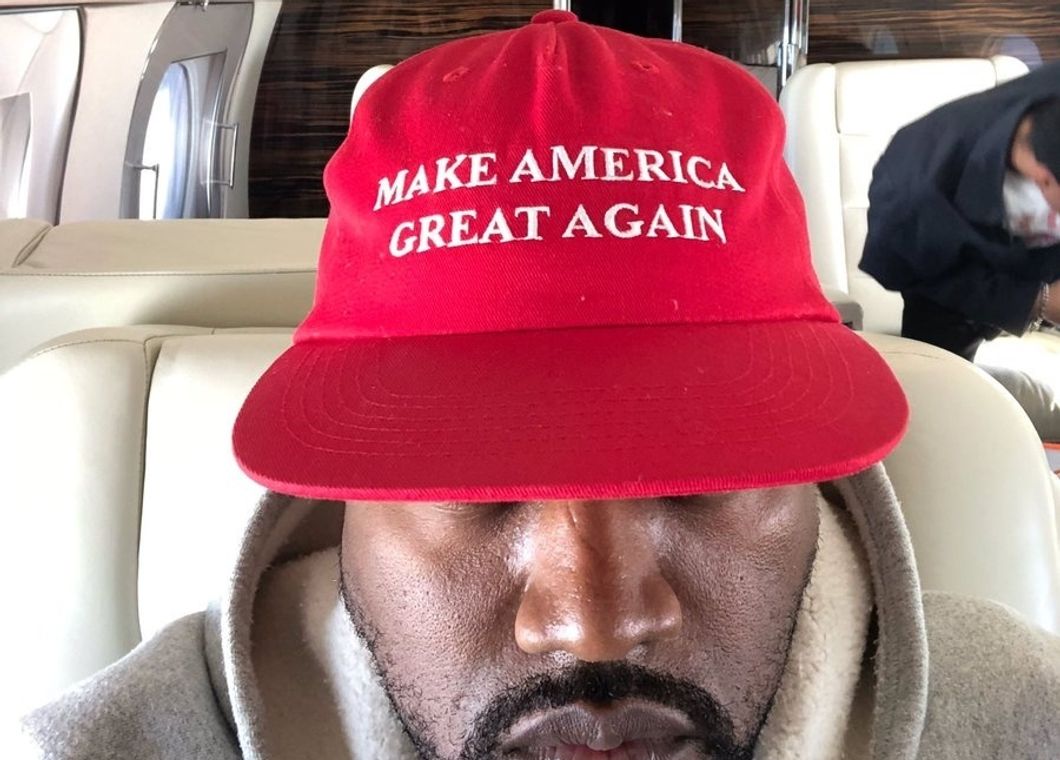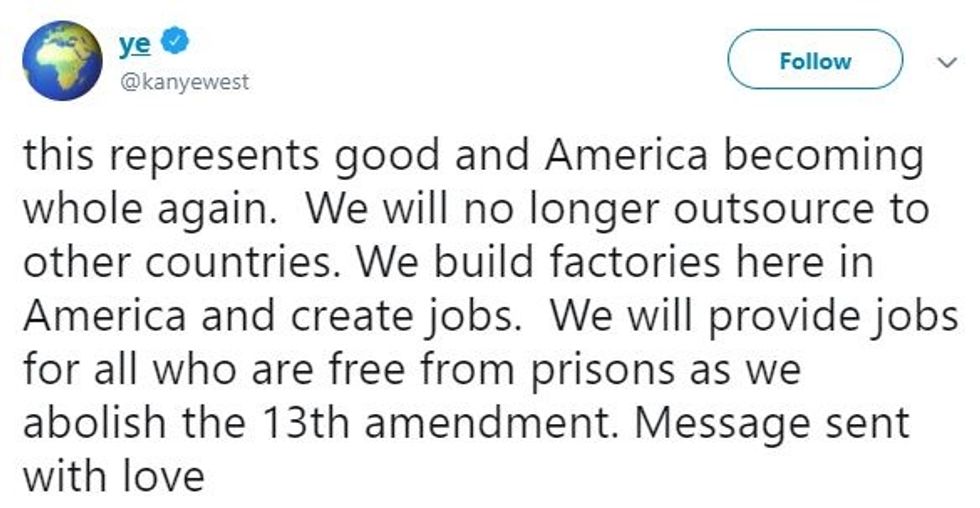Disclaimer: this story was originally posted on The Prowler as "Banning hate speech could end American liberties" on September 19, 2018. It has been edited and re-posted here with the permission of Justin Spencer of The Prowler.
On Oct. 1, I woke to find that the news group chat I was involved in had completely exploded. Suddenly, multitudes of people were calling to ban Kanye West from making music, saying that all his supporters should be ashamed of supporting such a horrid person, and his career ought to be in shreds. They were completely enraged over his tweet about the 13th Amendment.
Without even seeing what West had tweeted, I was enraged. On behalf of him.
Apparently, the First Amendment did not exist to my friends. Freedom of speech and freedom of the press, two hard-fought American liberties, were seen as completely void simply because they did not like what Kanye had said. Apparently, it was hate speech.
But, was it actually hate speech?
Obviously curious, I had to see the tweet that started it all. On Sept. 30, Kanye had tweeted picture of his red "Make America Great Again" hat with the following caption.
My first reaction was confusion.
The 13th Amendment states, "Neither slavery nor involuntary servitude, except as a punishment for crime whereof the party shall have been duly convicted, shall exist within the United States, or any place subject to their jurisdiction."
Kanye called to abolish the 13th Amendment. Why in the world would a black man want to abolish the amendment that abolished slavery? But confusion aside, I recognized immediately what his tweet isn't — not hate speech.
Many across the world wide web complained that Kanye's advocacy to abolish the 13th Amendment was hate speech. But though no set definition can be made for what constitutes hate speech, as different groups of people will consider different phrases and remarks as hate speech, his remark was not hate speech. His remark was not derogatory. His remark called for reform.
His remark did not identify any particular group of people as less than another group of people. He simply asked to ban the 13th amendment and reform the prison labor system. Which, is what he ended up clarifying soon after.
But let's pretend that he had written hate speech. Let's pretend he hated on the government, or a minority, or a particular sexual orientation. I'd say, "let him speak."
The first amendment states, "Congress shall make no law respecting an establishment of religion, or prohibiting the free exercise thereof; or abridging the freedom of speech, or of the press; or the right of the people peaceably to assemble, and to petition the government for a redress of grievances."
This has been commonly translated to mean that freedom of speech, press, religion, petition and assembly would remain completely free and uncorrupted by legislation of any type. (Other than some notable exceptions, like yelling "fire" in a crowded theater.) Right now, some people may want legislation to ban hate speech in public areas. I think not only would that be in violation of the First Amendment, this banishment could be the link to governmental censorship.
If literature has taught us anything, it's that governmental censorship inevitably leads to tyranny. If real life tyrannies have taught us anything, it's that the suppression of freedom of speech is the surest way to suppress a population. How else could North Korea boast the highest satisfaction rating of any county in existence, at a shocking 98 percent?
Banning hate speech in America could very possibly spark our doomsday. Since there is no real line drawn of what may or may not be hate speech, anyone could starting labeling opinions they disagree with as hate speech. This has already started, as seen all over the media, and it has already managed to infiltrate my own social circle.
For the sake of preserving our freedoms within this nation, all speech should remain forever free.












